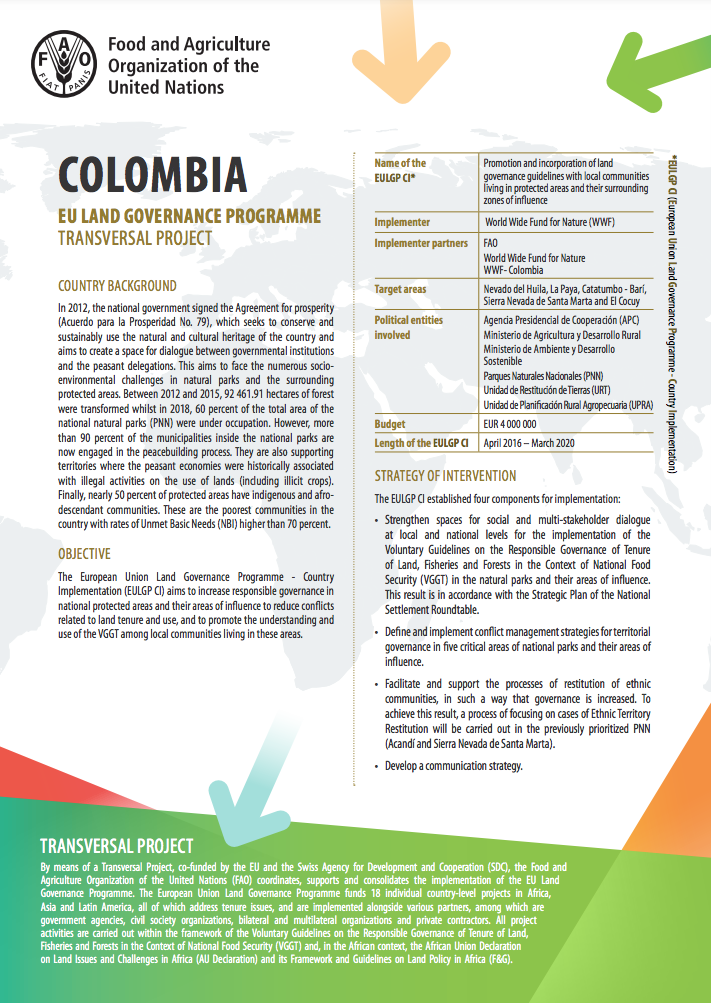In 2018, CCAFS and partners provided technical and policy recommendations on Land Productivity and Agricultural Performance for the Colombian Green Growth Policy. The government allocated US $74.5 million to implement actions that help to improve the agricultural sector's performance aiming…
In Colombia, one-third of the land is devoted to cattle farming, which is one of the main drivers of deforestation, land degradation, loss of biodiversity, and emissions of greenhouses gases. To mitigate the environmental impacts of cattle farming, agroforestry practices have been extensively…
The convoluted nexus between bovine livestock and the dynamics of armed confrontation in Colombia is a terrain open for exploration. While a vast array of archival sources suggests a historical, problematic connection between livestock production, land dispossession and rising violence in rural…
The 2016 peace agreement between the Government of Colombia and the FARC-EP created institutional space for an effective implementation of needed rural reforms. However, the change of power structures also contains risks, like the deterioration of natural resources and the strengthening of other…
The report "Towards an oil palm chain that contributes to the conservation of forests and the reduction of greenhouse gas emissions: Current status, opportunities with a value chain approach and action plan" presents an input for the development of an environmentally sustainable oil…
Livestock production is a fundamental source of income and greenhouse gas (GHG) emissions in Latin American countries. 20 percent of the region's emissions come from agriculture, 70 percent of which comes from livestock. There are several management and technology options with enteric…
The report "Towards a cocoa and chocolate chain free of deforestation and low in greenhouse gas emissions: Current status, opportunities with a value chain approach and plan of action" presents an input for the development of a cocoa chain free of deforestation and low in greenhouse…
The purpose of this brief is to reflect how stakeholders involved in different functional areas of Santiago de Cali’s food systems perceive food and nutrition security and sustainability in the city-region. Eleven interviews were conducted between June and August of 2019, with individuals…
Nine Latin American countries plan to use silvopastoral practices—incorporating trees into grazing lands—to mitigate climate change. However, the cumulative potential of scaling up silvopastoral systems at national levels is not well quantified. Here, we combined previously published tree…
There are few reports on dual-purpose cattle systems characterization in Latin America and Colombia based on
large datasets. This limits our understanding of their dynamics, and the establishment of public policies and
government programs to improve their productive performance,…
As the population increases, demand for food increases too, which has led to large-scale land conversion to improve livestock production in Colombia. Fulfilling these criteria of increasing demand in a sustainable way is a challenge and remote sensing data provides an accurate method to support…
n 2012, the National Government signed the Agreement for prosperity (Acuerdo para la Prosperidad No. 79), which seeks the conservation and sustainable use of the natural and cultural heritage of the country and aimed to create a space for dialogue between governmental institutions and the…



